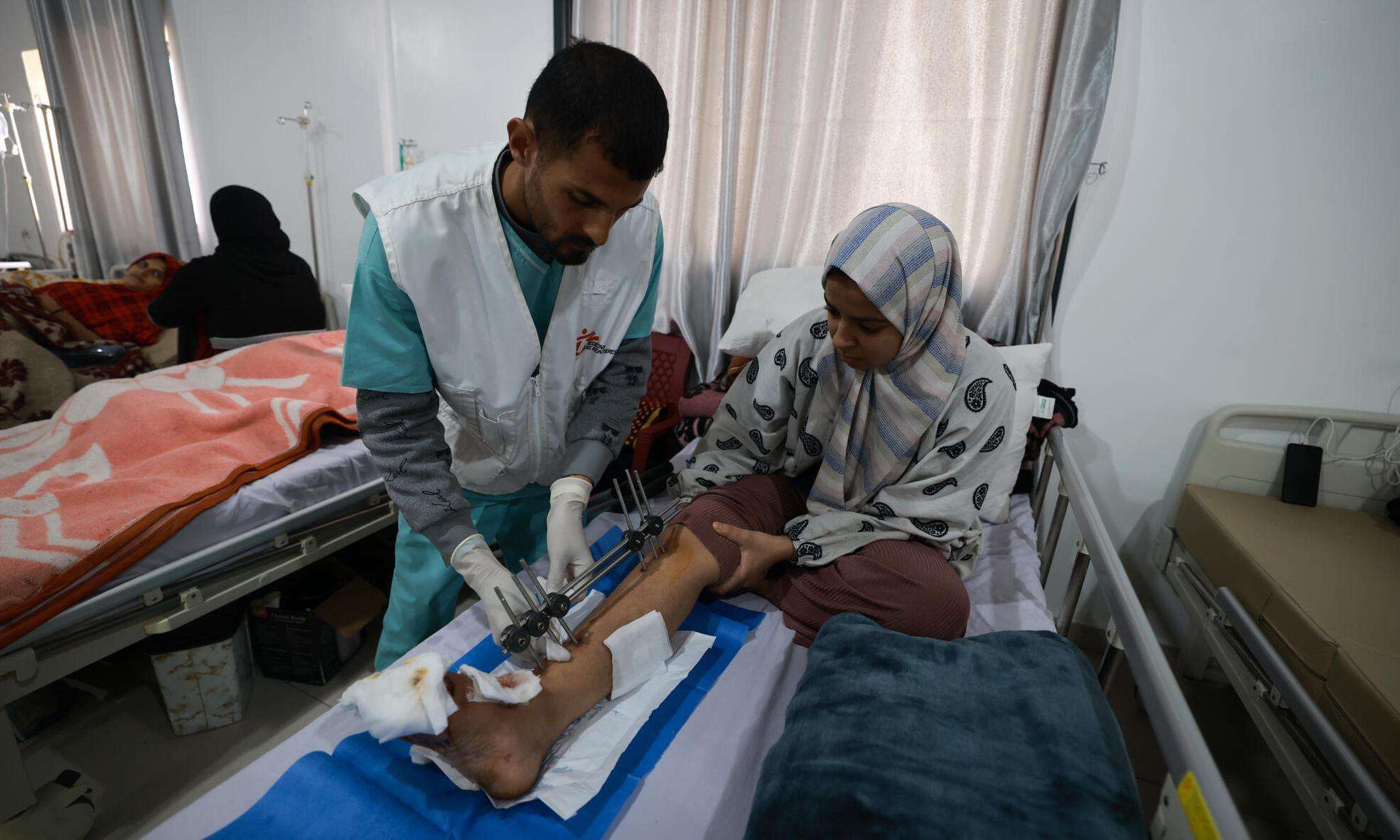Last updated on February 29, 2024
However, the humanitarian situation for trapped Palestinians remains catastrophic. More than 30,000 people have been killed in Gaza since October 7, and Israeli forces show no signs they are attempting to limit the loss of civilian life or alleviate suffering.
Israel’s tightened blockade of Gaza hinders the entry of vital supplies into the Strip. At the same time, the provision of aid within Gaza is nearly impossible due to Israel’s complete disregard for the protection and safety of medical and humanitarian organizations' staff. This cuts people off from lifesaving aid at a time they need it most. The humanitarian response in Gaza is a mere illusion.
“The stark absence of humanitarian space and lack of supplies we’re witnessing in Gaza is truly horrific,” said Lisa Macheiner, MSF project coordinator in Gaza. “If people are not killed by bombs, they are suffering from food and water deprivation and dying from lack of medical care.”
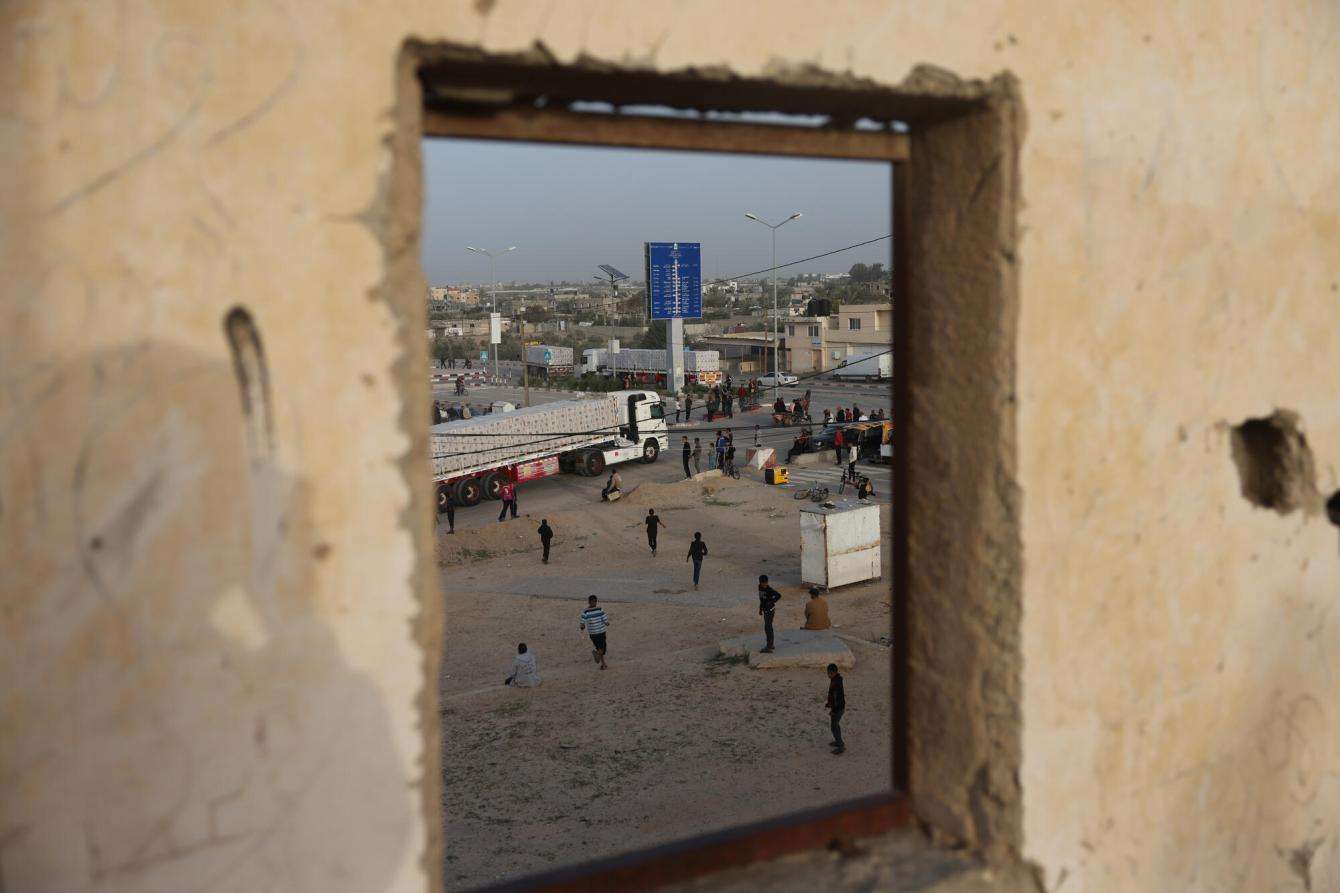
Medical and humanitarian staff are forced to risk their lives
Nowhere in Gaza is safe—neither for civilians nor for humanitarian workers trying to provide them with essential aid. Israel’s blatant and total disregard for the protection of Gaza’s medical facilities and humanitarian workers has made the provision of care and lifesaving assistance an almost impossible task.
In the past five months, health care facilities all over Gaza have been subjected to evacuation orders and have repeatedly been attacked, besieged, and raided. Medical staff and patients have been arrested, abused, and even killed. Among those health workers killed are five of our own staff from Doctors Without Borders/Médecins Sans Frontières (MSF).
Several family members of our MSF staff have also been killed, including one staff member’s five-year-old daughter in January and two other relatives of staff in the shelling of MSF’s shelter in Al-Mawasi last week. Israeli forces had been clearly informed of the precise location of the shelter, underscoring that nowhere in Gaza is safe.
The weeks-long siege of Nasser Hospital—the largest hospital in southern Gaza—is one of the latest instances of the ruthless targeting of health care facilities. After a shell struck the orthopedic department, killing and wounding several people, MSF staff were forced to flee and leave patients behind. One MSF staff member was detained at a checkpoint by Israeli forces while trying to leave the compound. We reiterate our call to Israeli authorities to share information about his whereabouts and to protect his wellbeing and dignity.
Medical staff who remain inside the hospital describe a horrific scene, where patients are trapped with limited food and no electricity or running water.
“Every evening, I say goodbye to my Palestinian colleagues ... and I am afraid I won’t see them in the next morning meeting,” said Macheiner. “Every day it feels like we are increasingly running out of options—to treat the wounded, to get the medical supplies, or provide the water that people desperately need.”
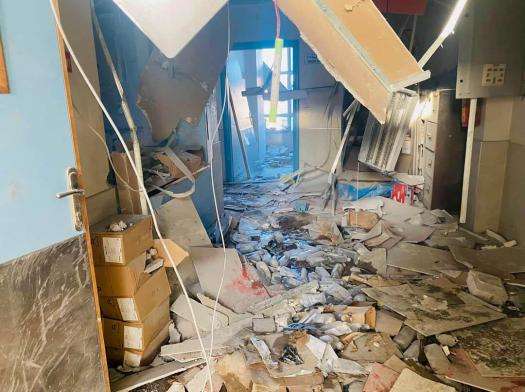
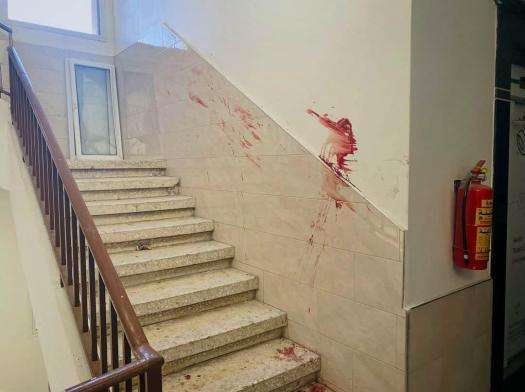
Damage to Al-Awda Hospital's Limb Reconstructive Surgery Unit after a strike that killed two MSF doctors in November. Palestine 2023 © MSF
Restrictions and lack of protection for aid convoys
North or south, humanitarian responders have no safety assurances to conduct their work and their convoys are being blocked and severely delayed at checkpoints, making it impossible to reach people.
The north of Gaza has been largely cut off from assistance for months, leaving people trapped and with no choice but to attempt to survive on miniscule amounts of food, water, and medical supplies. Entire neighborhoods have been bombed and destroyed. Although MSF has limited visibility of the overall humanitarian and health situation in the north, a few of our staff members remain trapped there.
“The situation in the north of Gaza is catastrophic and getting worse,” said one MSF nurse there. “There are no hospitals for even basic treatment, and the pharmacies are empty of drugs. My children have been sick for weeks because of the lack of clean water and proper food, and they are getting worse.”
According to the United Nations, between January 1 and February 12, half of missions planned by humanitarian partners to deliver aid and undertake assessments in areas north of Wadi Gaza were denied access by the Israeli authorities. The World Food Programme (WFP) is the latest humanitarian organization forced to halt lifesaving assistance to northern Gaza, saying the conditions do not allow for the safe distribution of food.
As part of Israel’s complete and inhumane siege of Gaza, the severing of aid supplies has plunged some two million Palestinians into desperation. The number of trucks entering the Strip dropped from an average of 300 to 500 trucks daily before the war, to an average of just 100 trucks daily between October 21 and February 23. On February 17, only four trucks were allowed into Gaza.
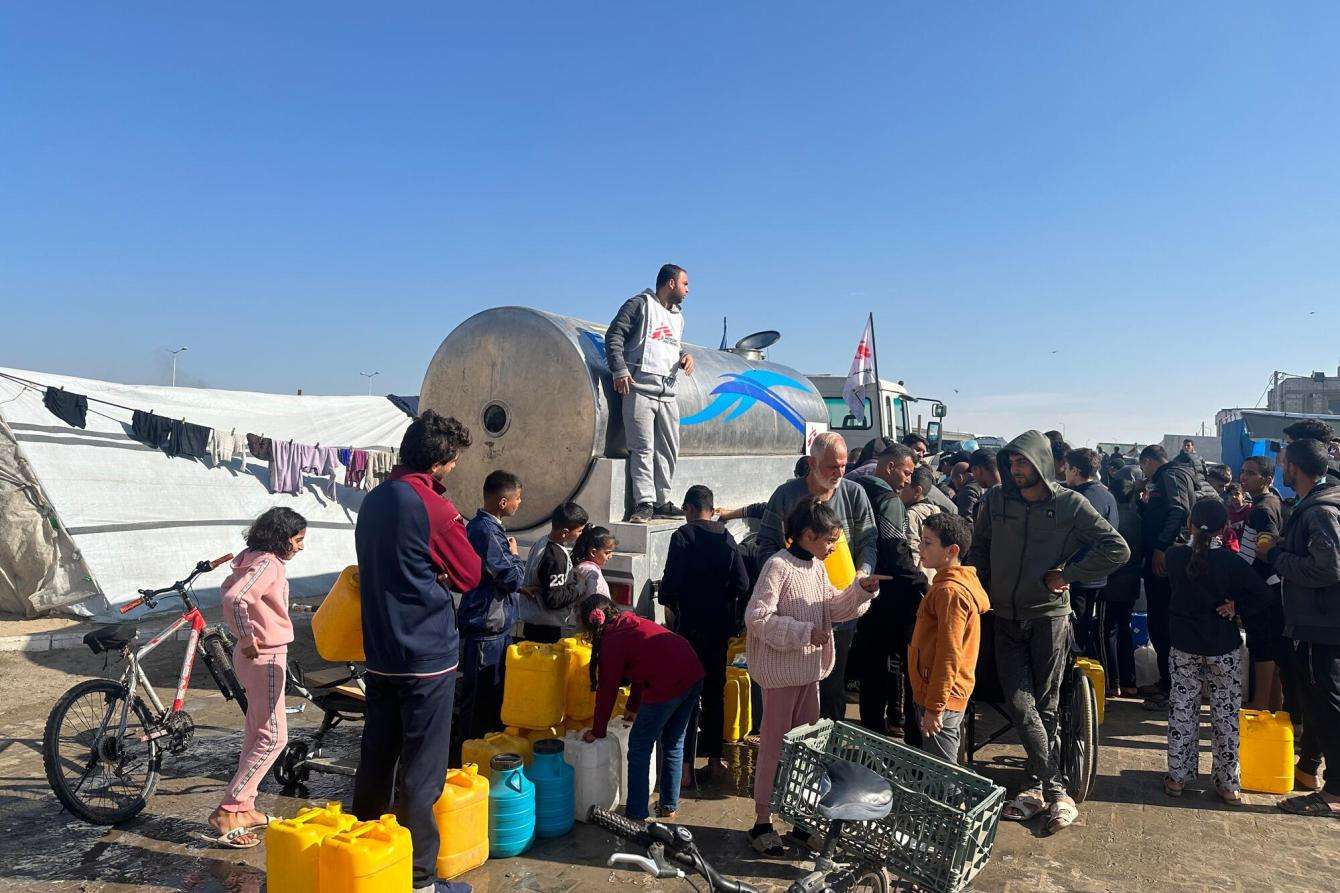
Administrative procedures significantly delay aid
Prolonged and unpredictable administrative procedures for aid deliveries to Gaza are impeding access to lifesaving equipment and supply for health care facilities. It can take up to one month for supplies to enter Gaza, because each box in each truck is submitted to screening. If Israeli authorities reject even a single item during the screening process, the entire cargo must be returned to Egypt. With no official list of restricted items, MSF has consistently been denied the import of power generators, water purifiers, solar panels, and various medical equipment.
“Every second that supplies are delayed, and every time an item is blocked, there is more devastating and unacceptable suffering,” said Macheiner. “These supplies mean the difference between life and death for many people.”
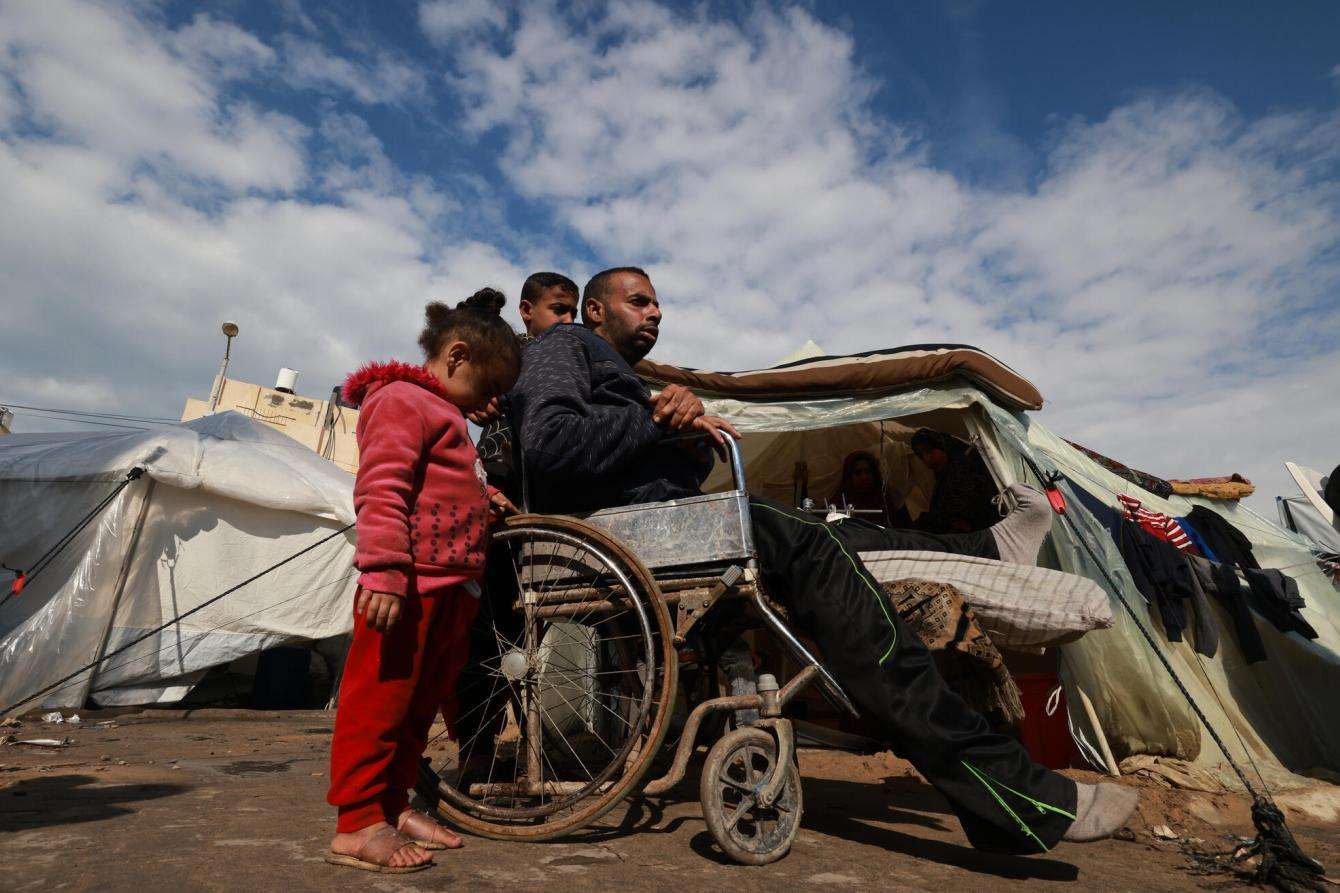
Patients with traumatic injuries and chronic conditions struggle to access care
In Rafah, southern Gaza, some 1.5 million forcibly displaced people are living in horrific conditions. They lack the basics needed to survive. Women are forced to use scraps of clothing as sanitary pads, and people are living in muddy tents without mattresses or warm clothing.
“People with chronic conditions such as cancer, diabetes, or epilepsy have barely any access to drugs and medicine,” said Dr. Hossam Altalma, an MSF doctor who works at Al-Shaboura Clinic. “People are desperate and willing to pay any price to get medication.”
Moreover, patients with war-related trauma injuries and burns often require continued, sustained care—care that is often impossible to access due to supply shortages, evacuation orders, and attacks on health facilities.
“Most patients with injuries need dressing changes at least twice a week, as well as antibiotics, painkillers, and constant medical care,” said MSF medical coordinator Guillemette Thomas. “If the injury is severe, the patient also needs physiotherapy to avoid losing the functionality of the injured limb.”
The living situation that so many people are facing in southern Gaza makes continuity of care even more necessary. Most of MSF’s patients are staying in tents or public buildings turned into shelters, where it’s almost impossible to keep open wounds clean, resulting in infections. The high risk of infections is one of the main issues for injured patients in Rafah. Without proper medical treatment, infections can spread through the body and to the bones, causing pain and leading to death if left untreated.
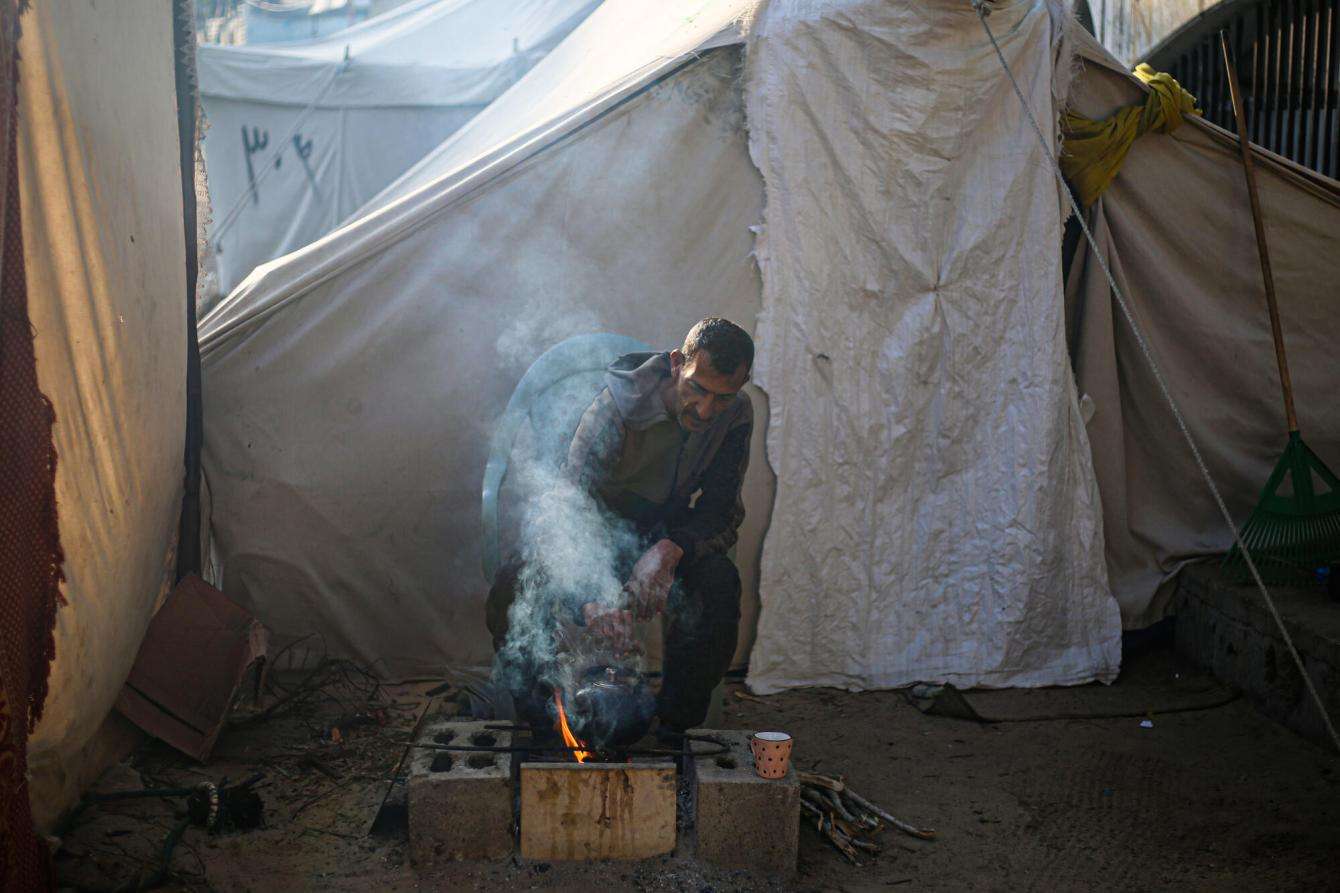
“People in Gaza cannot endure any more suffering"
MSF teams continue to provide humanitarian and medical care in Gaza where possible, including surgery, post-operative care, maternal care, mental health support, and water distribution. But this is all a drop in the ocean compared to people’s needs. MSF calls once again for an immediate and sustained ceasefire, meaningful safety assurances for humanitarian workers, and an end to the inhumane blockade so we can ensure people receive lifesaving assistance.
“People in Gaza cannot endure any more suffering,” said Macheiner. “They have lost all sense of safety, whether from the constant threat of being killed by bombs at night or the uncertainty of finding their next meal or drink of water.”
MSF operations in Gaza
Information on MSF activities in Gaza, the West Bank, and Egypt in response to the ongoing humanitarian catastrophe.
